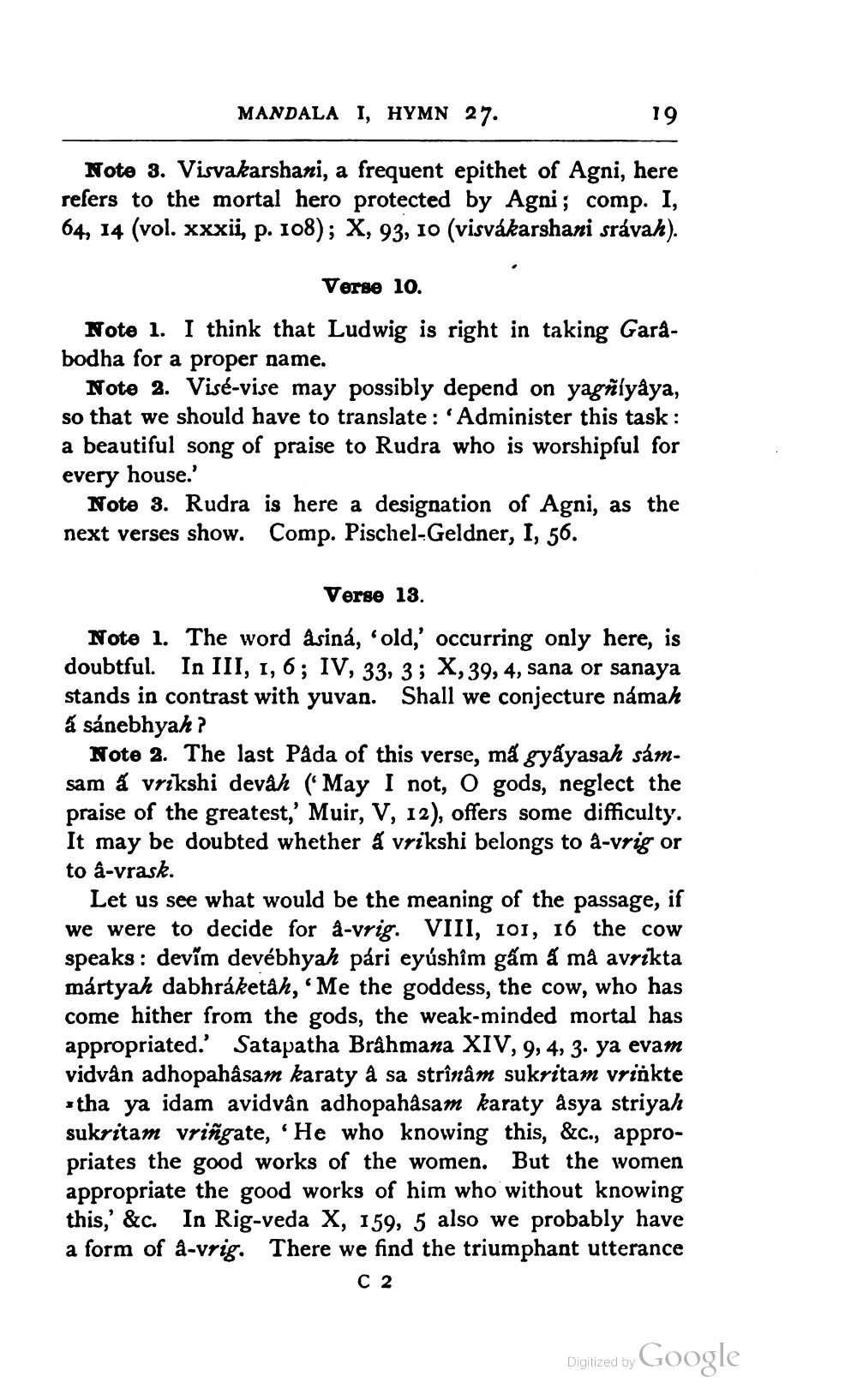________________
MANDALA I, HYMN 27.
19
Note 3. Visvakarshani, a frequent epithet of Agni, here refers to the mortal hero protected by Agni; comp. I, 64, 14 (vol. xxxii, p. 108); X, 93, 10 (visvákarshani srávah).
Verse 10.
Note 1. I think that Ludwig is right in taking Garabodha for a proper name.
Note 2. Visé-vise may possibly depend on yagñiyaya, so that we should have to translate:'Administer this task: a beautiful song of praise to Rudra who is worshipful for every house.'
Note 3. Rudra is here a designation of Agni, as the next verses show. Comp. Pischel-Geldner, I, 56.
Verse 13. Note 1. The word asina, 'old,' occurring only here, is doubtful. In III, 1, 6; IV, 33, 3; X, 39, 4, sana or sanaya stands in contrast with yuvan. Shall we conjecture námah á sánebhyah?
Note 2. The last Påda of this verse, ma gyáyasah samsam á vrikshi devah (May I not, O gods, neglect the praise of the greatest,' Muir, V, 12), offers some difficulty. It may be doubted whether å vrikshi belongs to a-vrig or to a-vrask.
Let us see what would be the meaning of the passage, if we were to decide for a-vrig. VIII, 101, 16 the cow speaks : devím devébhyah pári eyúshîm gám á må avrikta mártyah dabhráketah, 'Me the goddess, the cow, who has come hither from the gods, the weak-minded mortal has appropriated.' Satapatha Brahmana XIV, 9, 4, 3. ya evam vidvån adhopahâsam karaty à sa strînâm sukritam vrinkte
tha ya idam avidvân adhopahasam karaty åsya striyah sukritam vriñgate, 'He who knowing this, &c., appropriates the good works of the women. But the women appropriate the good works of him who without knowing this,' &c. In Rig-veda X, 159, 5 also we probably have a form of a-vrig. There we find the triumphant utterance
C2
Digitized by Google




